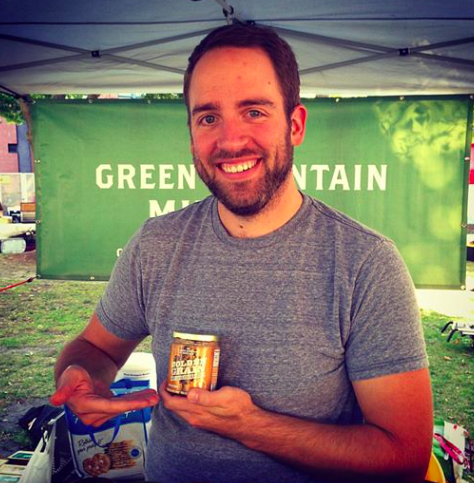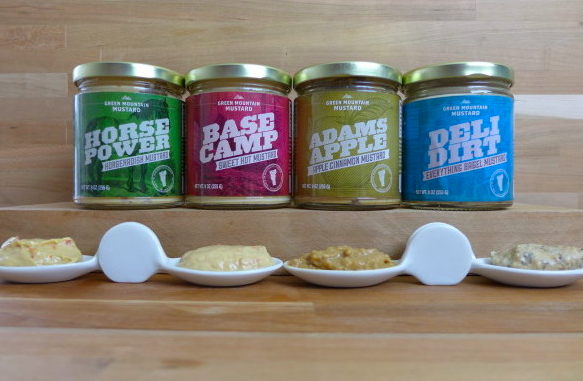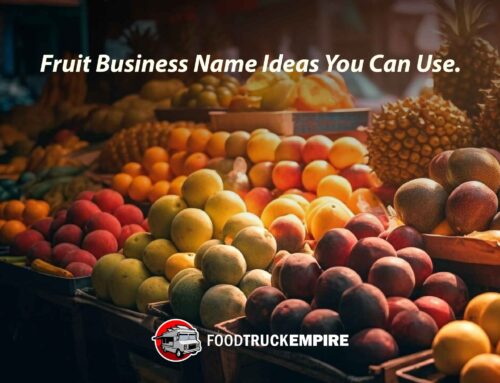Oh, food brokers. The mysterious lion of the food industry….
They help you. They hurt you. And you have to deal with both – all the time. But, there are benefits to bringing on a food broker to grow your company and get your products much needed distribution.
Below is a pros and cons list to help you decide it a broker is going to bring your company to the next level or send it crashing and burning. Based on my own experience running a food business, not all of these food brokers are created equal and some can do much more harm than good. Here’s my thoughts on the pros and cons of working with a food broker so you can decide what’s best your company.
What is a food broker?

A food broker helps get your food product get into grocery.
The job of a food broker is to get your food into grocery, convenience stores, or coops that might want to sell your food product.
Food brokers negotiate pricing of your food and establish relationships with national or regional buyers of these specialty stores.
Being a top-performing food broker is a lot like being successful sales professional in any other industry. Since the majority of food brokers work on a commission between 3% – 10%, food brokers only get paid when the products sell. A lot of the job is finding food products that match buyers want. If the product moves quickly off a buyer’s shelves, you can bet on more orders and a longterm relationship.
Related Reading: The Hidden Costs of Working with Co-Packer Revealed.
The challenge of working with food brokers is they could give up quickly on pitching your product if they don’t get an easy sale. Food brokers will naturally focus their effort marketing products where they make the highest commissions. Bottom line, if your product doesn’t capture the interest of buyers quickly most food brokers will move to the next sales opportunity fast.
Pros of hiring a food broker

Food brokers won’t take long to get up-to-speed on your offering.
1. Access to Connections
Brokers know people. They’re like networkers for the food industry. Whether it’s large box stores or small specialty shops you’re looking to get your product into, brokers know someone to make that happen. Plus, some large buyers only see brokers – not independent manufacturers. And brokers have been building these relationships for years – not starting from scratch and cold-calling. These connections are the most important asset brokers bring to the table.
2. Move more volume
Because of the connections, many good brokers help you move a lot of product. Granted, you’ll have to move a lot of product because of the broker’s fees. Plus, if the broker sells you into a distributor (an already low margin), they get their commission for as long as you have the account. That’s a lot of money. But, you move more product into distribution. And that’s the goal if you’re a young food company.
3. Let’s you focus on production
In business, you can either be the producer or the salesman – not both. It just won’t work. And with brokers on the road, you’ll focus most of your time on producing a high-quality product. If you’re just not into selling, a broker may be the partnership you’ve been looking for.
4. Less cost prohibitive than hiring an internal sales person
Most specialty food producers are bootstrap their way to success in the early days. If you’re reading this right now, you probably don’t have the capital to pay an employee $45,000 annual salary to fill this role. Plus, you would need to take the time to train the employee to understand the food business and get them up-to-speed on your product. An experienced food broker will already understand how to
Cons or hiring a food broker

The disadvantage to hiring a food broker.
1. High up-front cost
I’m not going to lie — brokers are pricey. Most brokers taking on a new product ask for a 6 month retainer of $300-$500+ – and they may not sell a thing. But, you’re paying them. Add on to that the broker’s commission — 5% – 8% depending on the distribution channel. Oh, and I almost forgot intro discounts. Brokers will want those to get your product off the ground. Be prepared to knock off another 10% – 15% as an initial order promotion for many of the brokers accounts.
2. No guaranteed results
Speaking of not selling anything…some brokers aren’t great. After you get locked into a contract, they may not even try to sell your product and simply pocket the money. While you’d love if that didn’t happen, it could. Be weary of people who guarantee results and look for brokers who present you a plan of action once your line is accepted.
3. Most require exclusivity
Brokers don’t like to step on each other’s feet. And they want to know you’ve given them exclusive rights to sell your product in a defined area. That way two brokers aren’t trying to sell your product into a region of Whole Foods. That’s a mess. I had one broker who wanted exclusivity east of the Mississippi River. Absolutely ridiculous. Don’t be afraid to push back and counter to make sure you have happy brokers. Although, they can cover the same area if they hit different distribution channels — maybe one is convenience stores and the other is specialty gourmet shops.
Case Study: How Two Moms Launched Keto Cracker Company Defy Foods
4. You’re not the one selling
You are your best salesman for the first couple years of your company. You know you your product the best, you’re passionate, and you (hopefully) can sell it into a couple local retailers. Beyond that, you may run into buyers who prefer to deal with the owner of the company. With large accounts, it doesn’t quite matter, but small accounts? They want to see your face.
5. They represent many products
Some brokers represent a handful of products – maybe 8-10 companies. Other brokers represent thousands of items – similar to a distributor. This means your product line is easily lost in the shuffle. Work with smaller brokers if you don’t want that to happen.
I’m aware the cons outweigh the pros here.
I have yet to hire a broker because I believe I sell my product better than any broker could. Plus, there’s no room in my margin to let a broker take their cut (thank you increased product costs!).
But, if you find working with a broker to be the right fit for your company, I’ve provided some tips to get the process started below:
How to Get Started with a Food Broker

Packaging from Defy Foods.
First of all, you’ve got to find one. Check out one of these sites:
Reader note: We are in no way associated with or incentivized to mention any of these companies. This is just a starting point.
Then, you’ve got to get down to business:
1. Know the terms of the contract – or write your own.
I’ve been sent a couple contracts and they’re long. There’s a lot of legalese. It’s a good idea to get a lawyer and write your own contract for the broker. That way he or she works on your terms and you can sever ties if they aren’t performing to your agreed upon goals. This can make the process of breaking up easier.
2. Define your territory & limitations
Don’t give your broker the entire nation. That’s not a smart decision. Typically, brokers focus on regions or specific customers. Define your area, the customers you’d like them to sell into and how much product you have to sell. I found one of the biggest limitations to being represented by a broker was the amount of product I’m able to produce.
3. Ask how you can help
This is a partnership. You have to help each other sell your product line. Find out how you can hit the ground running – whether it’s by sending samples, providing sell sheets, or train the broker’s team about how your product is different from everything else on the market. Do this within a week or two after you sign the contract.
Have you worked with a food broker?
What’s your experience? I’d love to hear your stories (good and bad) in the comments below. If you’d like to join our community of 40,000+ food entrepreneurs, sign up here. Each week we release an exclusive food founder case study that you can use to understand what’s working now in the food industry.




